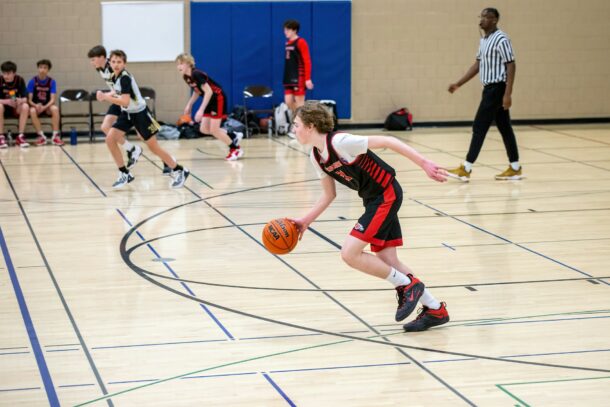As a veteran basketball coach, I’ve seen countless young athletes develop on the court. Over the years, I’ve identified the most important skills youth basketball players need to master. These skills go beyond mere physical abilities and encompass mental and emotional growth. Today, I’ll share insights into the most important skills youth basketball coaches should focus on to build successful teams and well-rounded players, along with specific drills and activities to enhance these skills.
1. Patience and Vision: Cornerstones of Youth Basketball
One of the most important skills youth basketball coaches should teach is patience. Patience allows players to stay calm and make better decisions under pressure. When players have patience, they can control the game’s pace and force their opponents to play at a rhythm they’re uncomfortable with. Vision, on the other hand, enables players to anticipate movements, both of their teammates and their opponents. Teaching young athletes to develop patience and vision can lead to significant improvements in their overall game performance.
Drill: “Slow-Fast Breaks”
Set up a scrimmage where players must play at a slow pace for a set period (e.g., 2 minutes) and then switch to a fast break for another period. This teaches players to control the tempo and be patient, while also recognizing when to speed up and take advantage of opportunities.
2. Accountability: A Key Skill for Youth Basketball Success
Accountability is another critical skill for youth basketball players. Encouraging players to take responsibility for their mistakes helps them learn and grow. When players understand that mistakes are part of the learning process, they become more resilient and focused. Coaches can foster accountability by creating a team culture where mistakes are viewed as opportunities for growth rather than failures. This mindset shift is one of the most important skills youth basketball coaches can instill in their players.
Drill: “Mistake Response Drills”
During practice, intentionally put players in situations where mistakes are likely, such as a difficult passing drill. After a mistake, pause and have the player acknowledge it, then immediately repeat the drill to correct the error. This reinforces the idea that mistakes are learning opportunities.
Join the TeachHoops Community: Step into Enhanced Coaching
TeachHoops.com offers a unique platform for coaches to share experiences and gain new insights. Learn from others who have navigated similar challenges. It’s an invaluable resource for those looking to:
- Broaden perspectives
- Refine strategies
- Enhance their leadership and motivational skills
Win the Season: Basketball Masterclass!

Related: Home Basketball Strength Training
Coach Unplugged Podcast:

Free Basketball Coaching Resources
If you found this useful, don’t forget to check out additional blog posts at TeachHoops.com. Also, check out TeachHoops on Facebook, Twitter, Instagram and YouTube.






